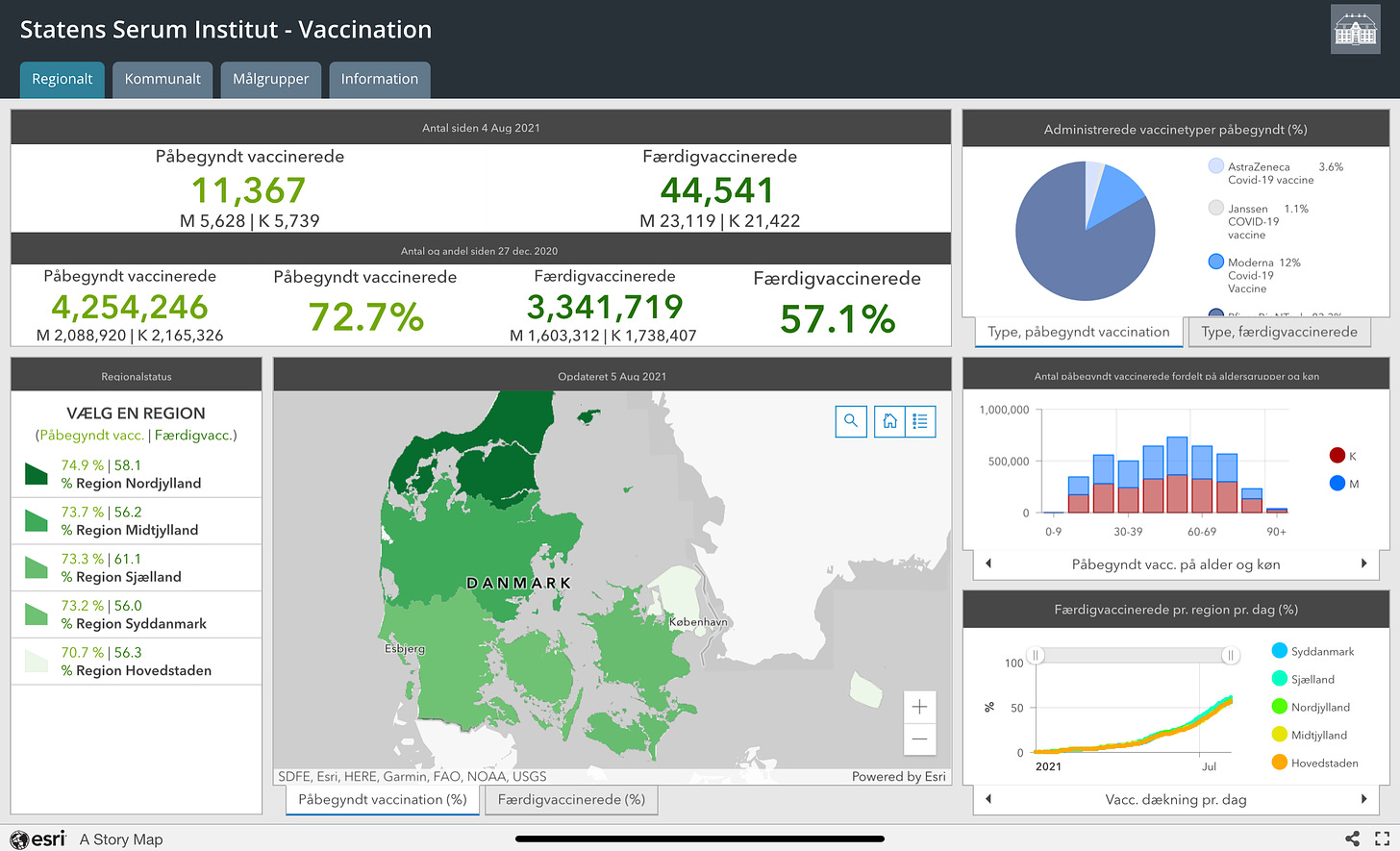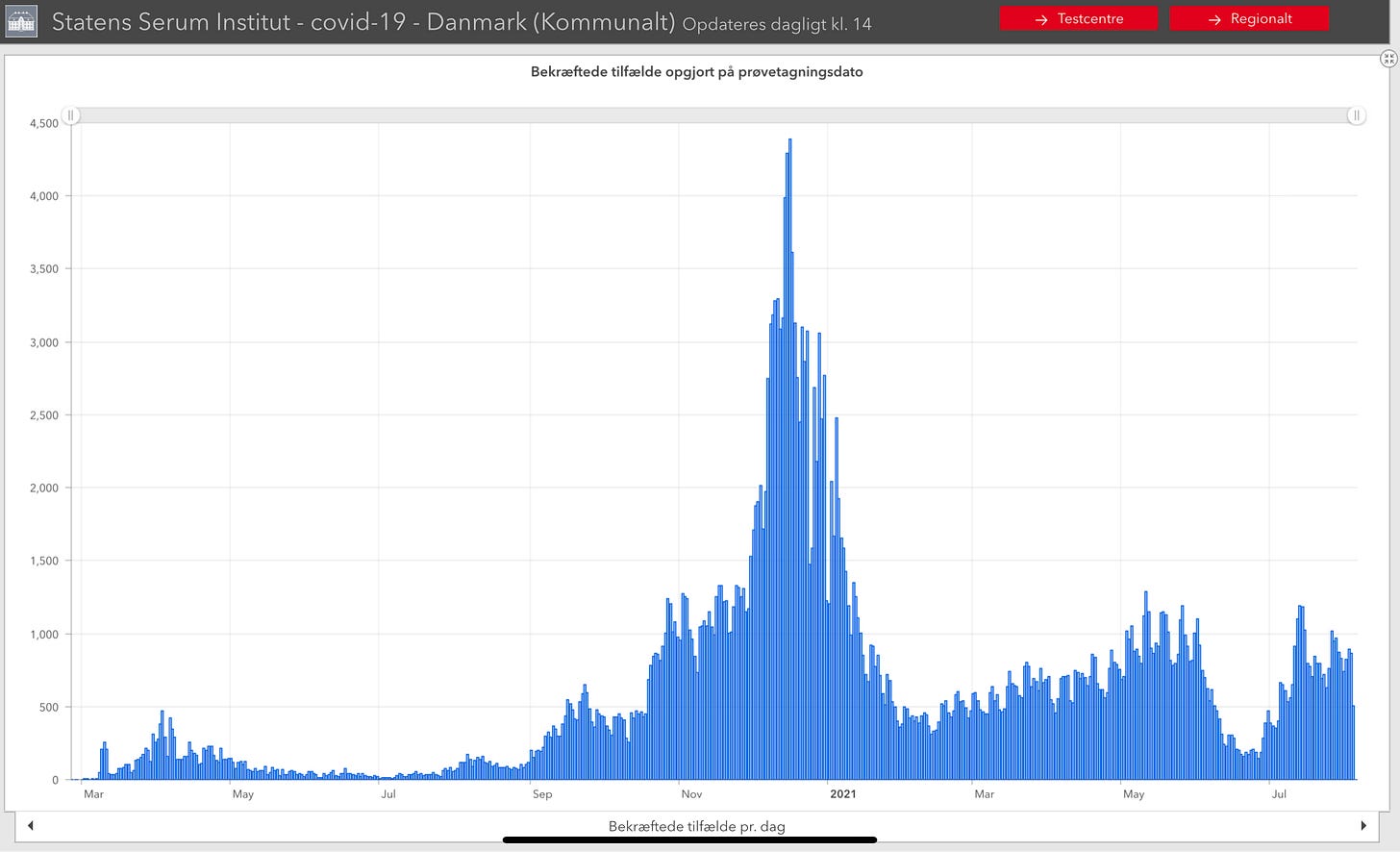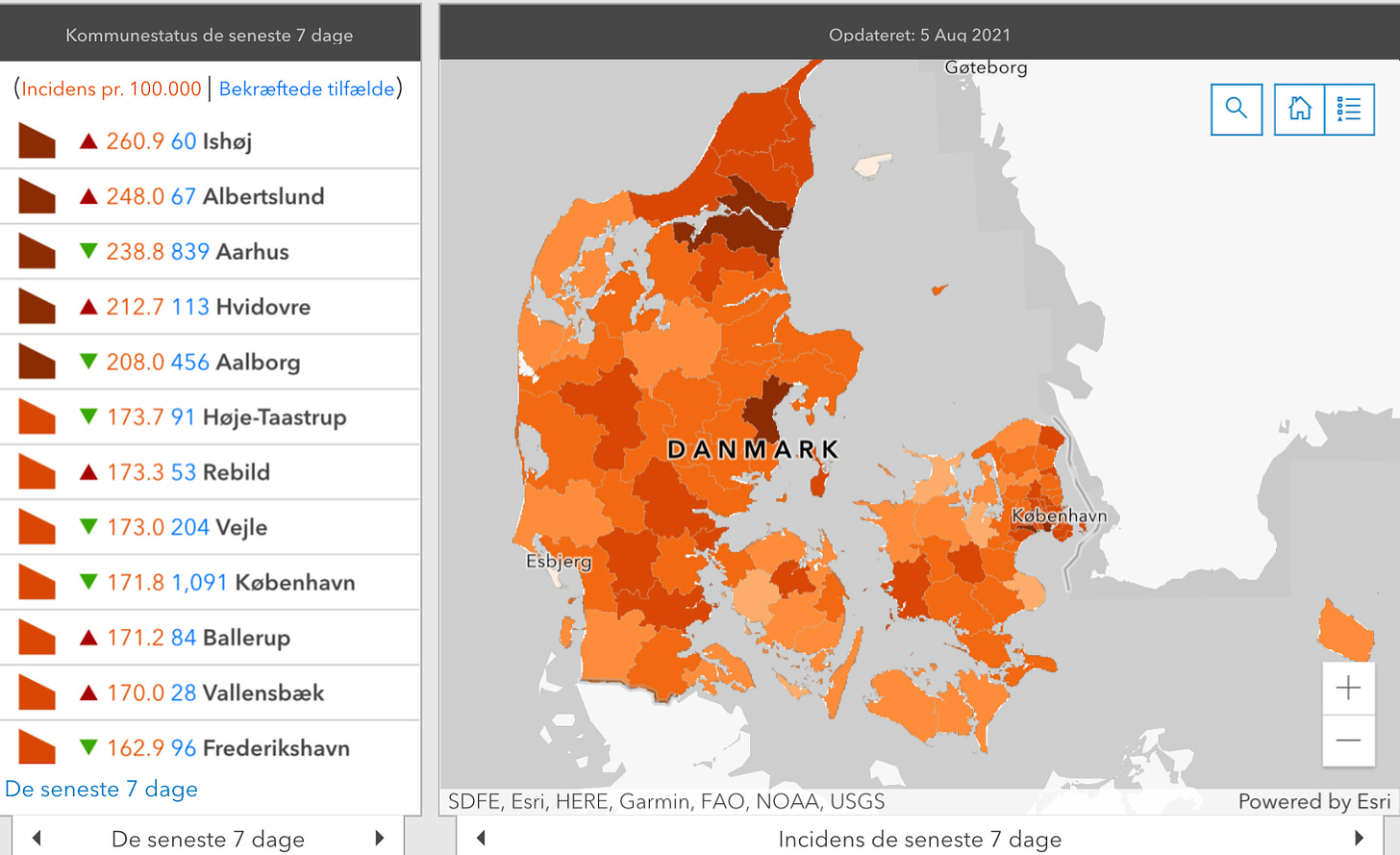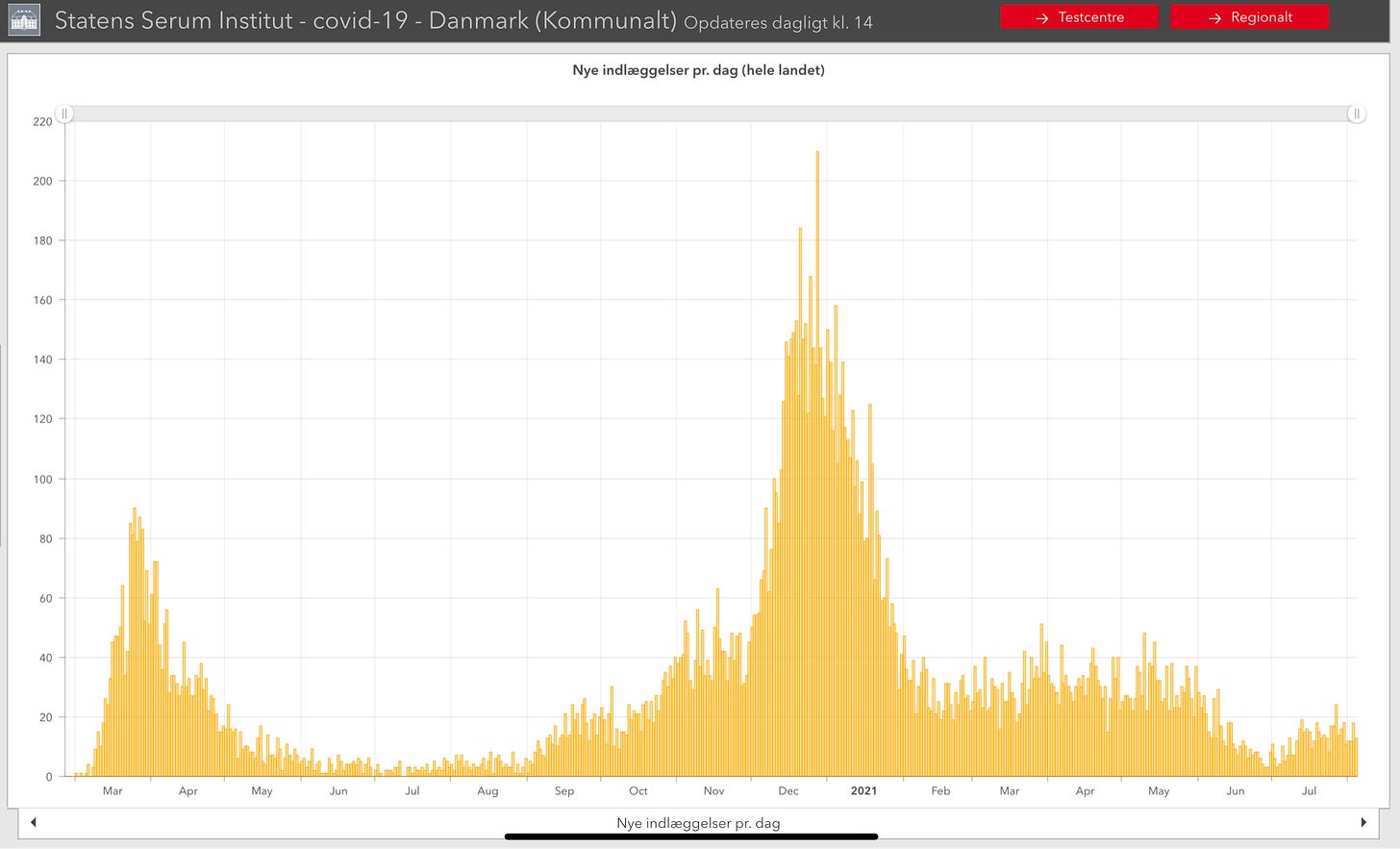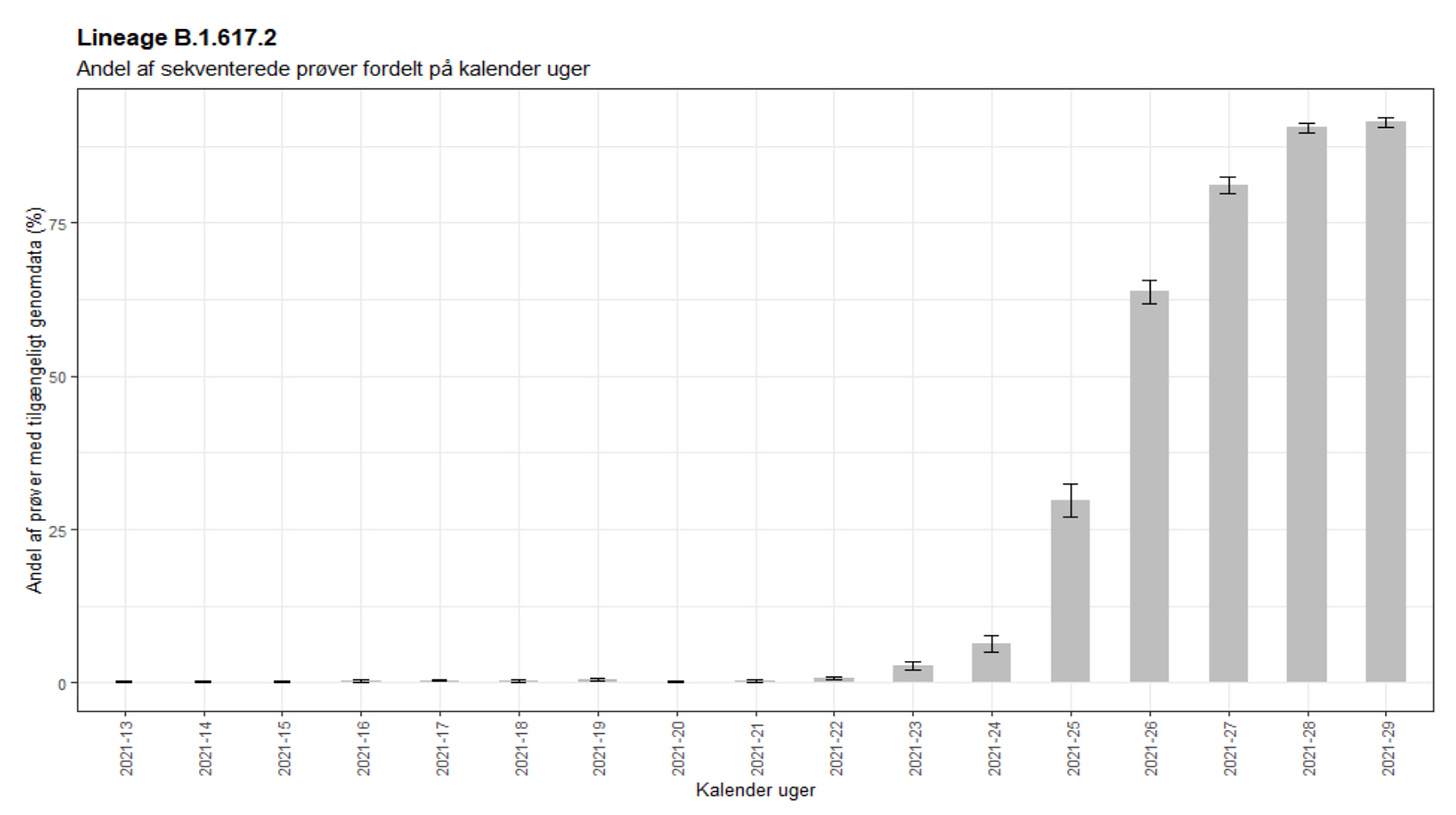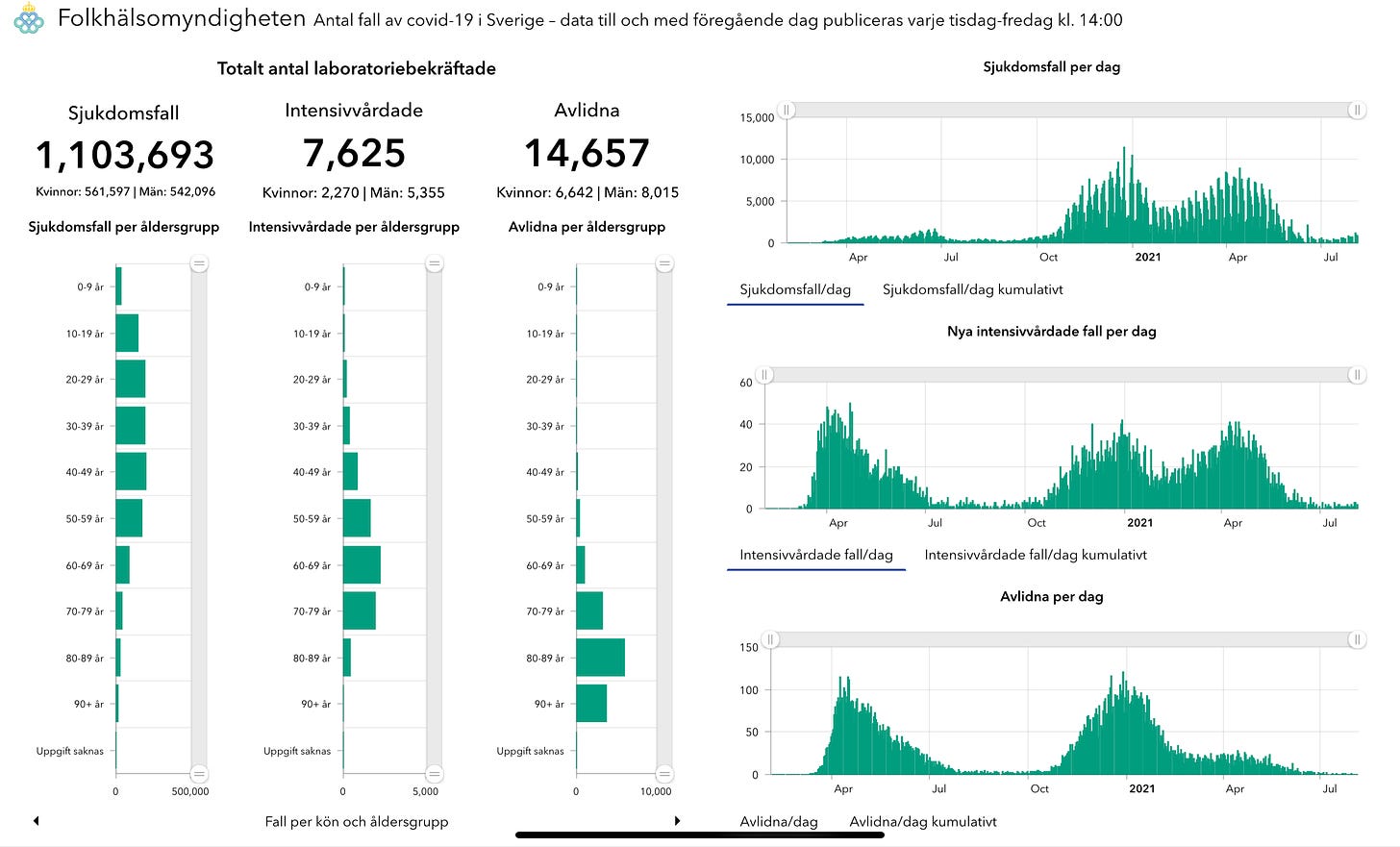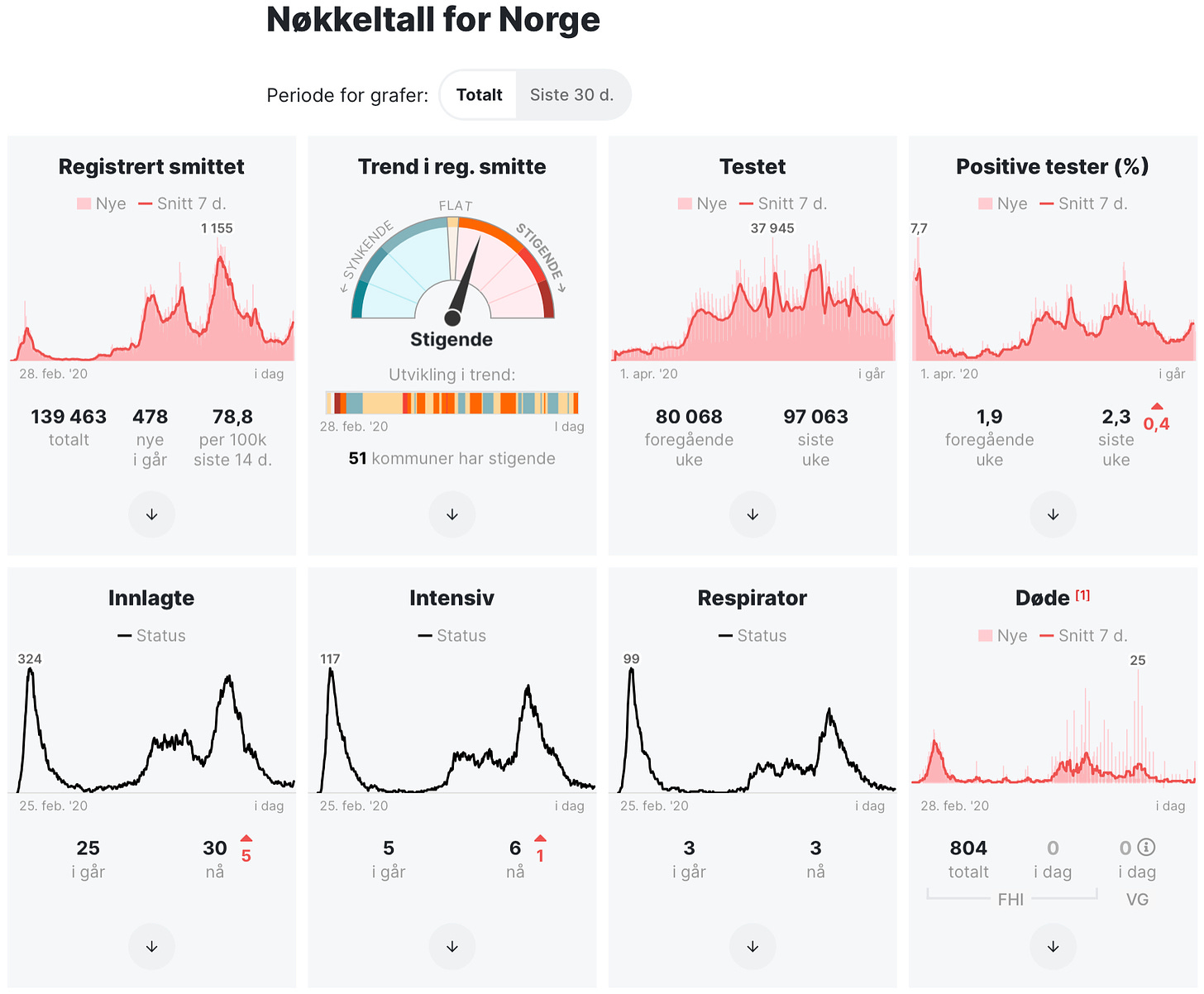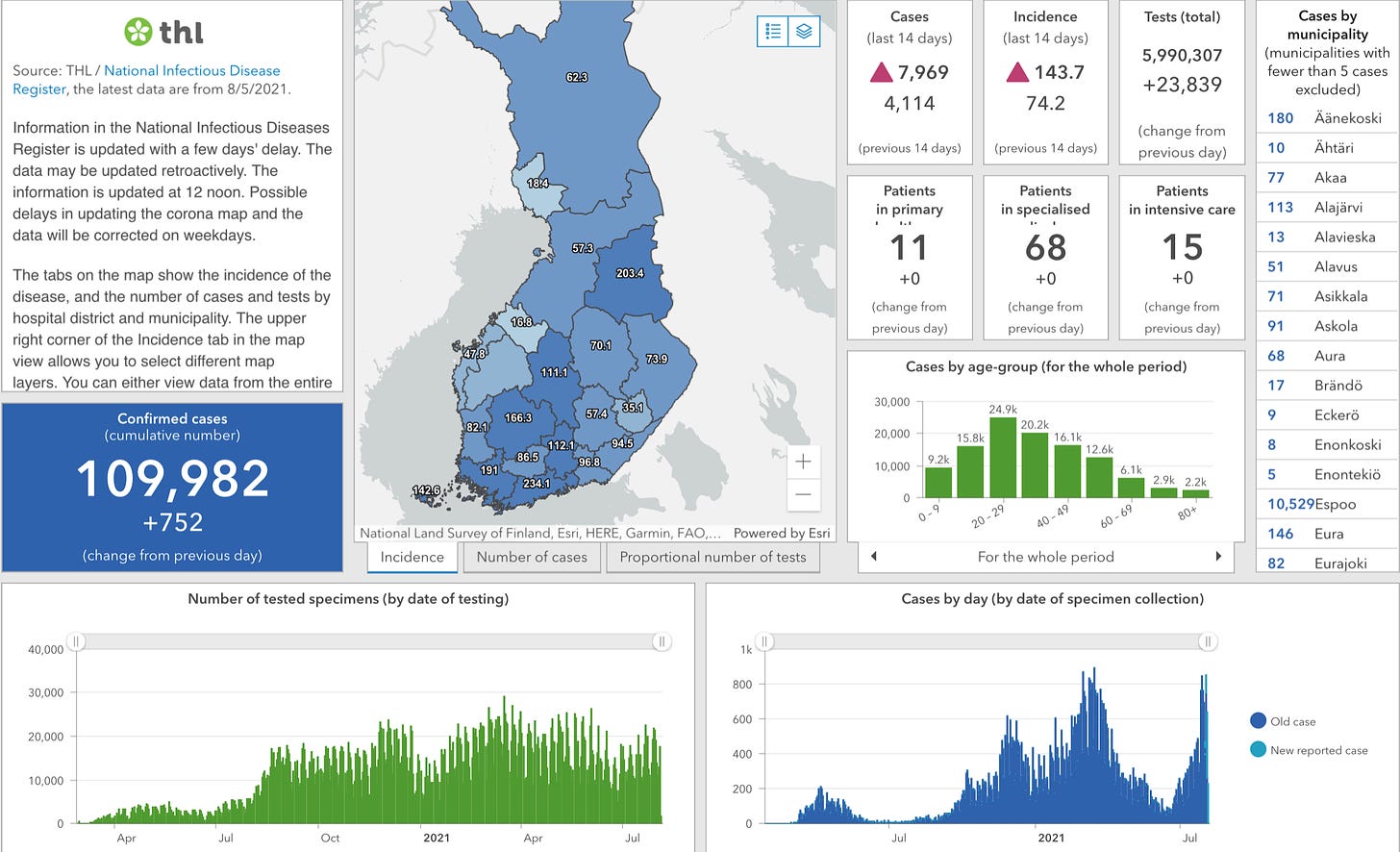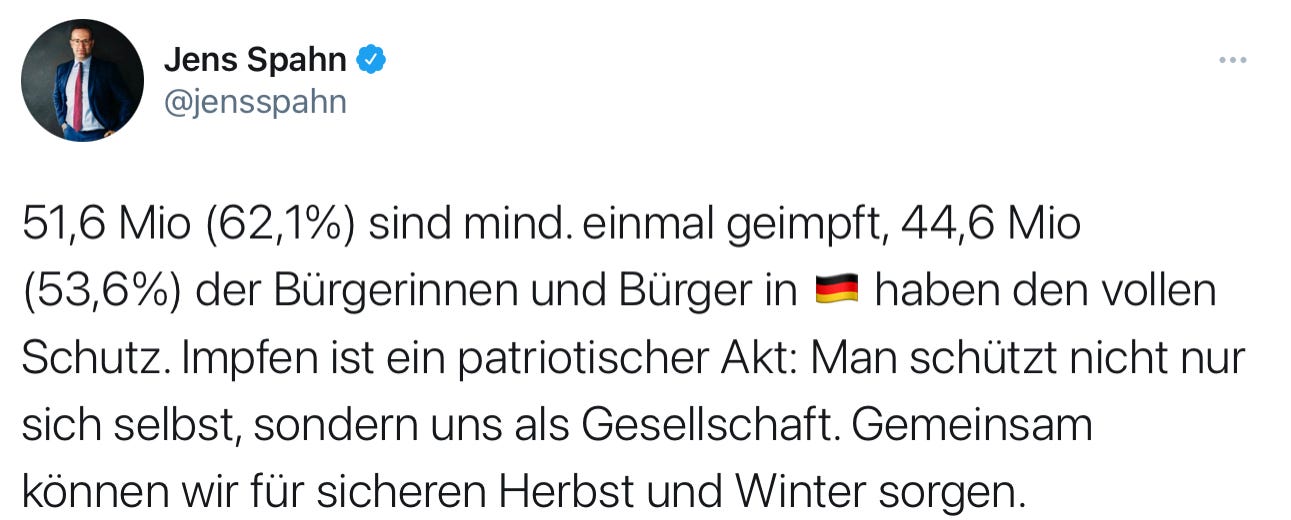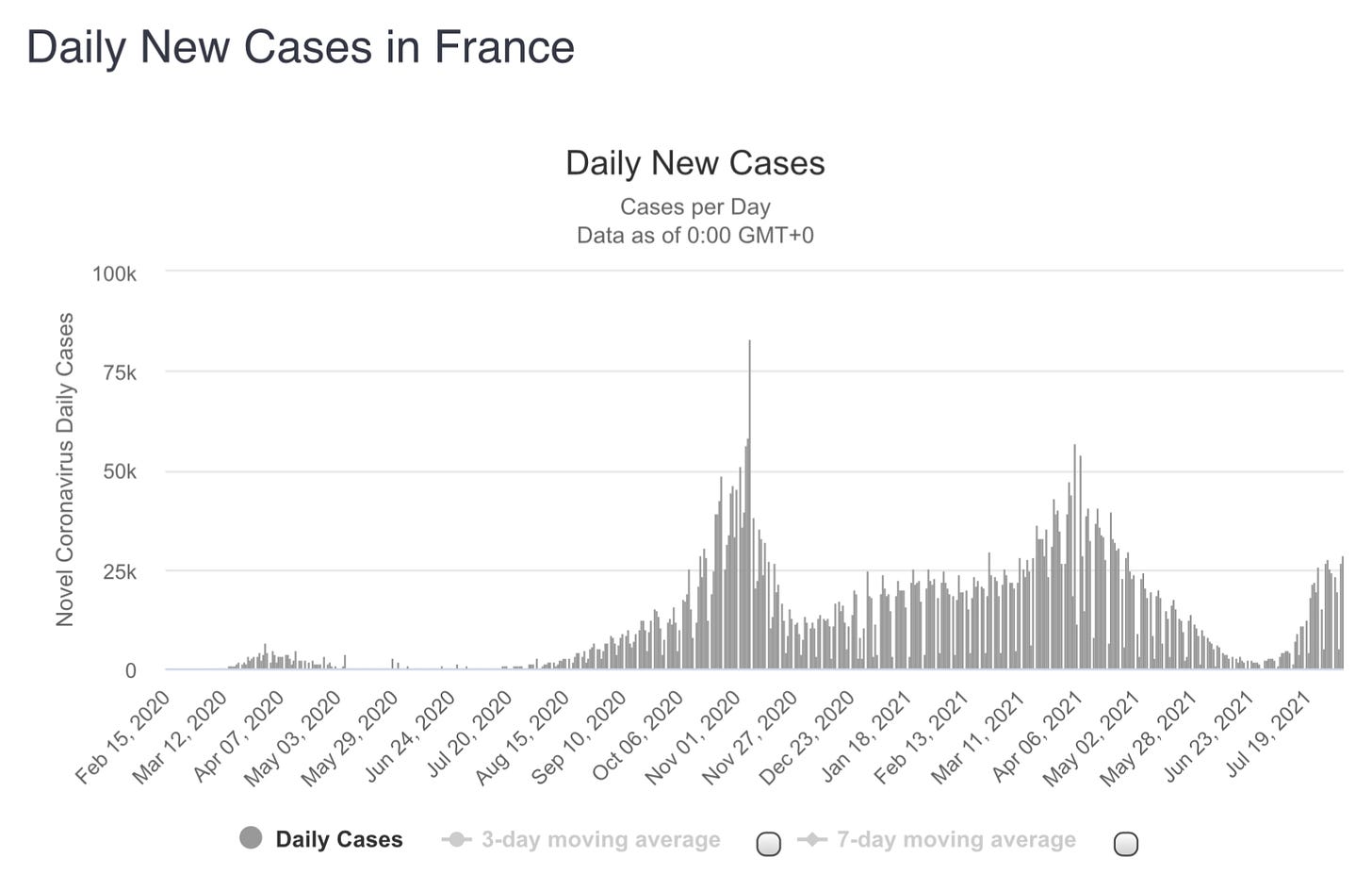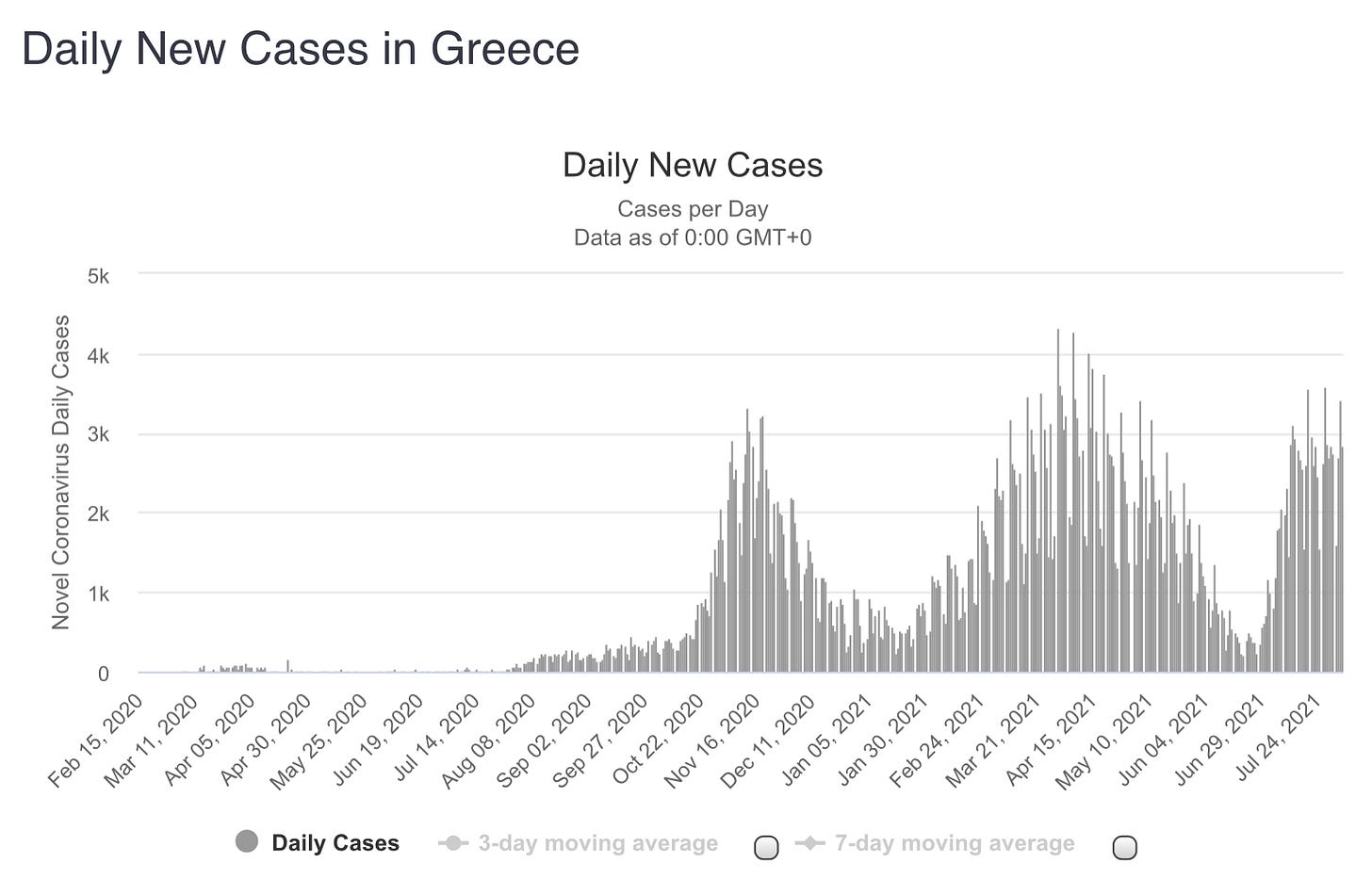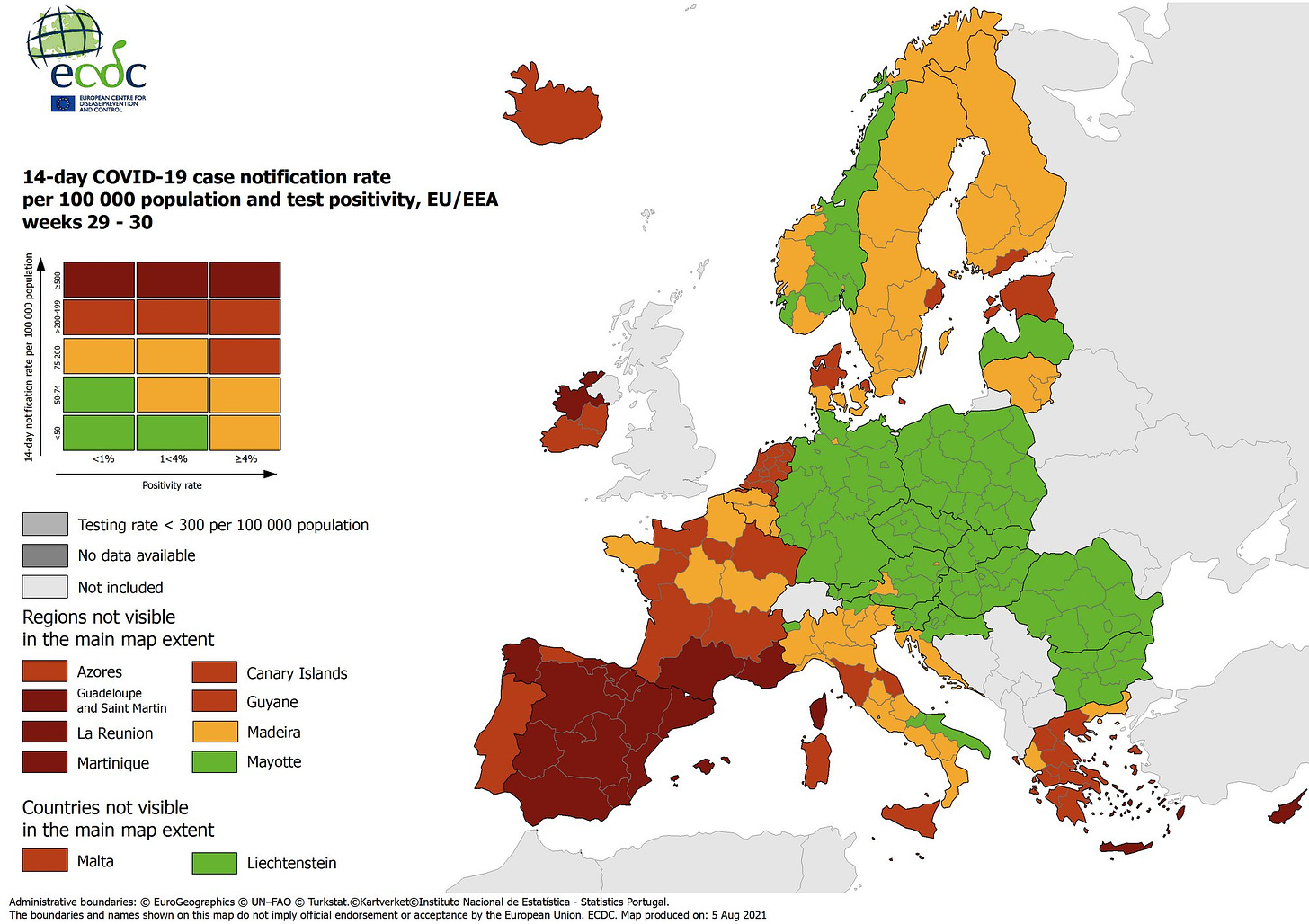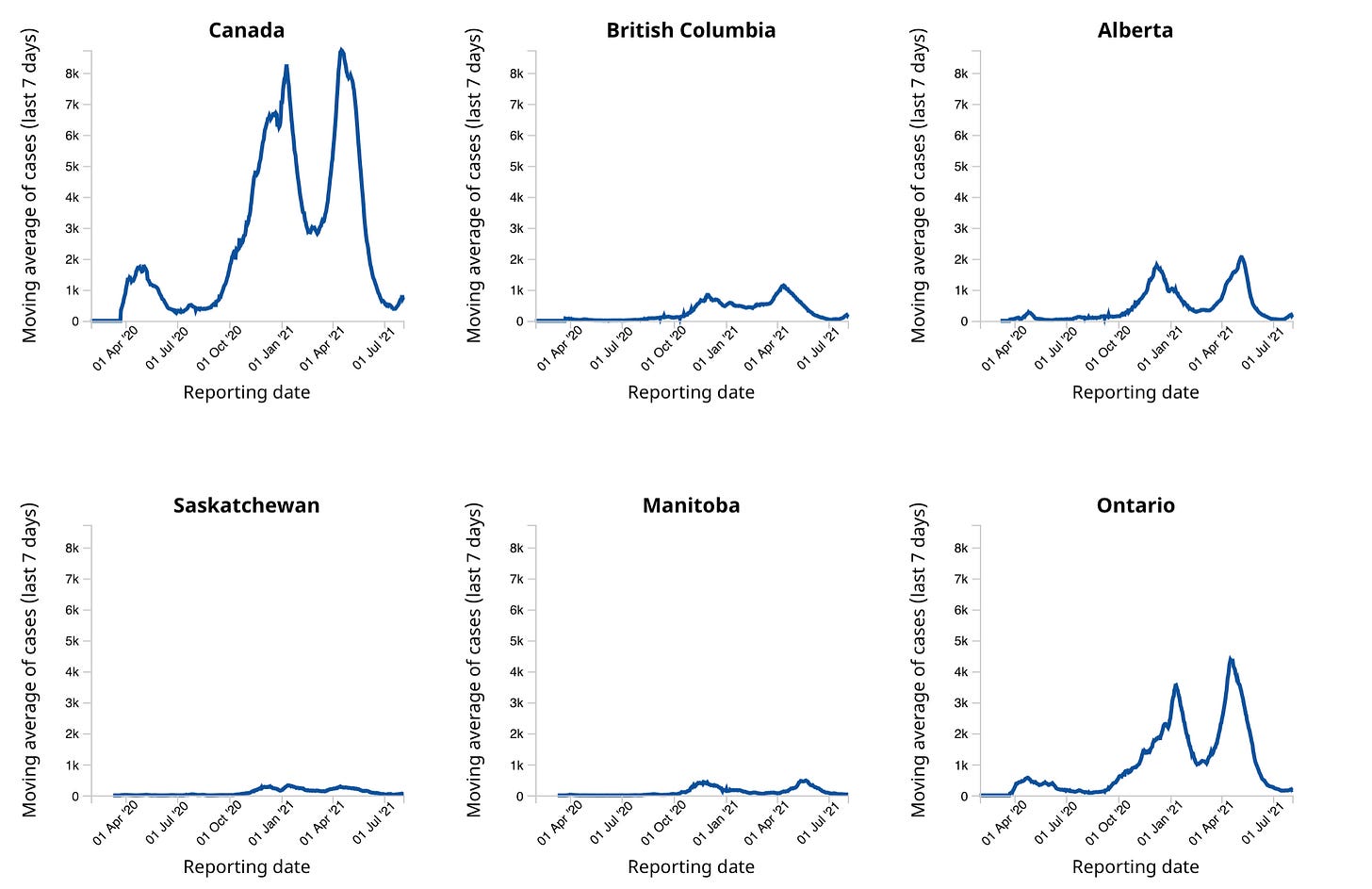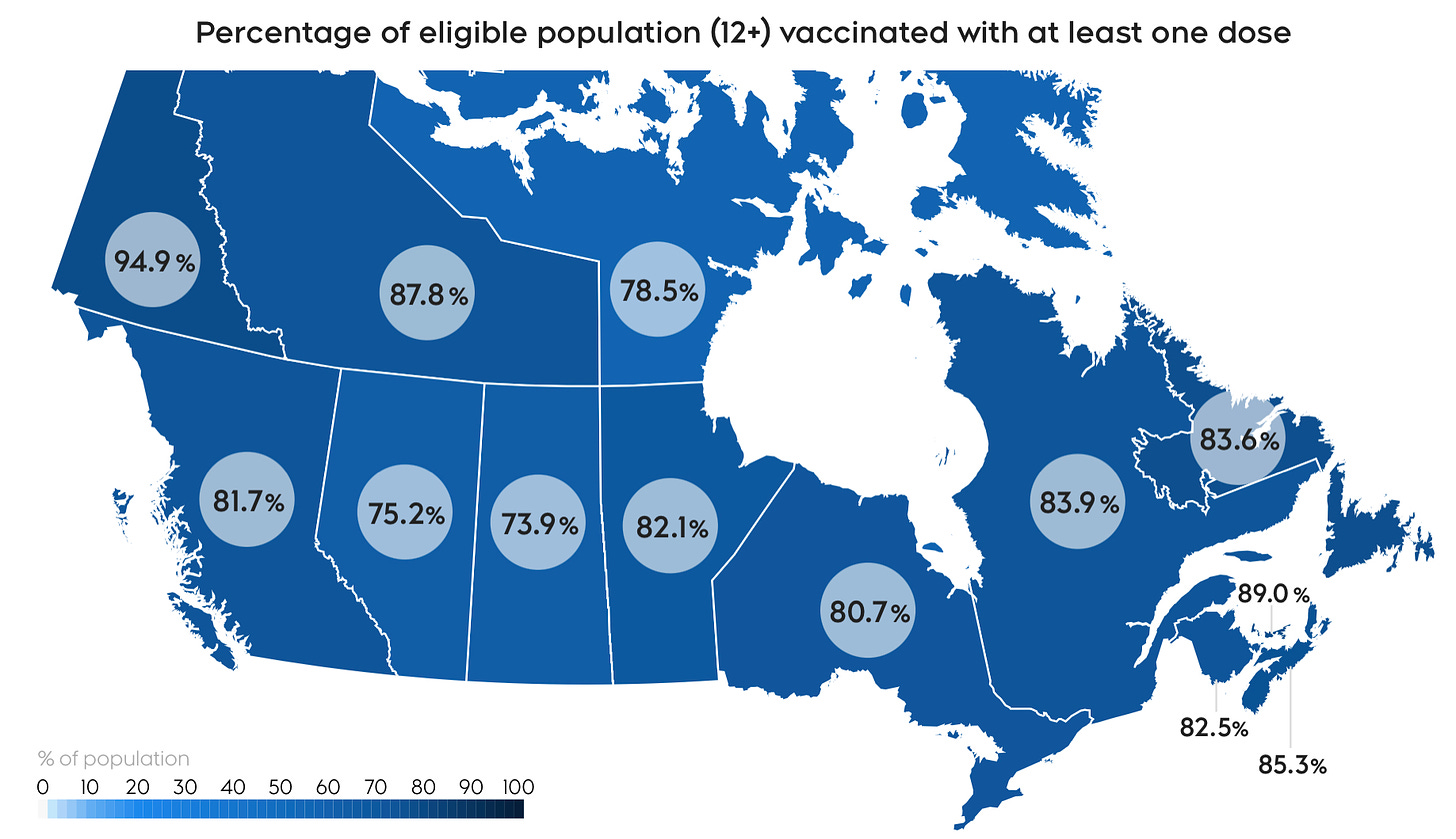🇩🇰
According to Politiken, Denmark’s National Board of Health could ease COVID guidelines for schools before students return next week.
Sundhedsstyrelsen’s Andreas Rudkjøbing:
“We hope to present relief in the school area next week, where the goal is for the children to get an education with as few interruptions as possible due to the pandemic.”
Currently all students and staff are tested and sent into isolation when a child has been confirmed to have COVID. Two negative test results are required to return to class.
-
The Director of the Danish National Health Board says they are discussing whether children under the age of 12 should also be vaccinated. Søren Brostrøm told Børsen he expects to see results of studies and research on vaccinating young children by the end of this year or early next year. He says that information will be crucial to inform any decision. Brostrøm says the other important factor will be what the infection situation looks like in Denmark at that point.
-
When college and university students return to schools in Region Sjælland next week, they will be met by vaccination pop-up sites ready to help get them the jab. The health region is activating 30 temporary vaccination sites with the express purpose of driving up vaccination rates for those aged 18 to 25 years old.
-
Denmark’s National Health Board says vaccination uptake is soaring across Denmark, even among young people. Sundhedsstyrelsen says 74% of those aged 18 to 24 years old have had a first vaccination dose. It says this puts Denmark at the very top among European countries with a population of at least one-million. For those 25 to 34 years old, vaccination uptake is over 60% and the national health agency is banking on those numbers increasing when summer holidays are over.
SST Director Søren Brostrøm says among adolescents between 12 and 15 years old, vaccine uptake is also looking very positive.
“We are very pleased that half of those aged 12-15 have already been vaccinated or have booked a vaccination time. Considering it is the middle of a summer holiday, with only three weeks since they received their invitations, this is really promising. It is crucial for our control of the epidemic that as many people as possible are vaccinated, and of course we would really like even more people to accept the vaccination offer, preferably before school starts.”
About 10% of adolescents across Denmark have yet to receive a vaccination offer. This is because they are waiting on their 12th birthday, when an invitation can then be sent.
-
According to Ritzau, 16% of all vaccination invitations sent out across Denmark have been ignored. That equals roughly 800,000 people. This is based on the latest numbers from the Staten Serum Institut. Another 50,000 have booked times for a first dose but have so far not shown up to get it. Health Board Director Søren Brostrøm says that summer holidays are probably playing some kind of a role.
-
The Danish vaccination effort has administered first vaccination doses to 72.7% of the population, while 57.1% are now fully vaccinated.
Yesterday, there were 55,908 total inoculations done, a number lower than we have seen in weekday in recent weeks.
-
Denmark has recorded 1,859 infections and two more coronavirus deaths in the last two days. There were 927 infections reported yesterday and another 932 today.
Yesterday, there were 53,634 PCR tests done with a positivity percentage of 1.74%, which is very high and rising.
The number of Danish kommunes with COVID incidence rates above 100 per 100,000 residents has risen to 34 and of those, five now have COVID incidence rates above 200.
COVID hospitalizations (62) have gone up slightly (+3) and the number of infected people in an ICU (9) has inched upward (+1) and of those, the number on a ventilator (8) is unchanged.
-
The latest Staten Serum Institut variant update shows another 3,970 confirmed cases of the Delta variant have been confirmed in the last week. That pushes the to-date total to 16,689.
The variant now accounts for 95.7% of all sequenced positive test results.
-
Region Nordjylland says infections are decreasing in Skagen, but COVID remains a concern “in and around” Denmark’s northern-most point. The health region will keep a PCR testing site at city hall open from 9 to 5 every day until at least Sunday.
🇬🇱
Greenland will begin vaccinating adolescents between the ages of 12 and 15 years old by as early as next week. Health Minister Kirsten Fencker made the announcement at a press conference.
“The only weapon we have against the coronavirus are the vaccines. It is our best tool, and therefore we encourage everyone to get vaccinated.”
Greenland is currently seeing some of the highest daily case numbers in the pandemic yet.
🇸🇪
Sweden has added 1,793 infections and had no new corona deaths since its Tuesday update.
To date, 6,482,493 1st-dose vaccinations (79.2% of the population) while 4,369,521 people (53.4%) are fully vaccinated.
🇳🇴
Norway has confirmed another 1,032 infections and had five more virus deaths since Tuesday’s update.
COVID hospitalizations (30) have increased (+5) and the number of infected people in an ICU (6) has edged up (+1) while the number on a ventilator (3) is unchanged.
To date, 67.88% of Norwegians have had one vaccine dose while 34.93% have had both.
-
Norway may be seeing the beginning of a fourth infection wave. After six weeks of stable infection numbers new infections jumped 45% last week compared to the week previous.
The Delta variant is the dominant strain in Norway, increasing its share of all sequenced positive test results from 1% twelve weeks ago to 90% last week.
The Norwegian Institute of Public Health says that while infections are increasing across all age groups “but is clearly highest among teenagers and younger adults.”
The Møre og Romsdal region had the highest number of infections in the country last week after having the lowest in the previous two weeks. It is followed by Vestland, Oslo, and Troms and Finnmark.
The NIPH says hospitalizations remain low, as does ICU capacity. The number of COVID deaths also remains stable.
“We consider it unlikely that the epidemic will be as large as previous waves, and that the hospitals' capacity will be threatened. The epidemic must be closely monitored in the coming months, and measures must be balanced against the burden of disease, especially hospital admissions, capacity in the health service and the progress of the vaccination program. Vaccinations in the municipalities must continue at full strength.”
🇫🇮
Finland has registered 1,624 infections in the last two days, while adding two more corona deaths in the last week. It reported 872 cases yesterday and another 752 today.
COVID hospitalizations (95) have jumped upward (+38) and ICU numbers (15) have also increased (+6).
The Finnish vaccination campaign has so far administered 3,720,289 1st vaccine doses (66.6% of the population) while 2,040,899 people (36.6%) are fully vaccinated.
Finland will begin vaccinating adolescents aged 12 to 15 years old as of next week.
-
Finland is seeing new infections explode. Last week, the number of new COVID cases increased by 56% over the week before. More than a third of all infections were diagnosed in 20-29-year-olds. Travel-related infections accounted for about 6% of all infections in Finland last week.
The Finnish Health Ministry says contact tracers are under pressure from sharply increasing infection rates and are scrambling to reach people and get information. The source of infection was identified in just 52% of cases in recent weeks. It says that contact tracers aren’t alone, as the burden on specialist care has also increased.
🇩🇪
German Health Minister Jens Spahn is playing the patriot card, saying it’s everyone’s national duty to get vaccinated. He says getting your shots not only protects you it also helps keep everyone else safe, too. Spahn says 51.6 million people in Germany (62.1% of the population) have one dose and 44.6 million people (53.6%) have both vaccine doses.
-
The German Health Ministry is also looking at charging for COVID tests. Currently, the state picks up the testing tab at a cost of about €37 billion. The hope is, by playing the ‘saving taxpayers money’ card people will stop using testing to go out and do things and instead just get vaccinated.
🇫🇷
AFP is reporting today that France’s Constitutional Court, the top constitutional authority in the country, has ruled in failure of the government’s vaccine passport regime. Beginning Monday, people will need a vaccine passport to eat in cafes, restaurants, and to use inter-city trains, and planes. People will also have to prove vaccination status, previous infection, or show a recent negative test to go into shopping centres and department stores, as will visitors to hospitals and seniors care homes.
The court did specify that the vaccine passport requirement must not be an obstacle to receiving health care. It also rejected the government’s efforts to be able to force people with a coronavirus infection into quarantine.
France has taken a hardline with vaccinations, also recently mandated by law that healthcare workers and those with a job putting them in close contacts with infected people just get vaccinated.
Today France reported 26,460 new infections and 52 more corona deaths
🇬🇷
As of tomorrow (Friday) the party is over on the Greek party island of Zakynthos, as well as in the city of Chania in Crete. In an effort to bring down the infection curve, the Greek government has mandated bars, restaurants, and other party places cannot play music day or night until at least August 13. A curfew preventing anyone going out at night has also been imposed.
Greece remains an EU COVID hot spot with 2,787 new infections and another 12 virus deaths today.
🇪🇺💉
The European Medicines Agency and the European Centre for Disease Prevention and Control are urging people to get vaccinated. The two health agencies emphasize that being fully vaccinated is the absolute best protection against the Delta variant, severe COVID cases, and death.
ECDC Chief Scientist Mike Catchpole:
“While the available vaccines are highly effective in protecting people against severe COVID, until higher proportions of the population are immunised, the risk is not beyond us. We are now witnessing an increasing number of coronavirus cases across the EU/EEA and vaccines remain the best available option to avoid an increase in severe disease and death.”
Both European health agencies say in order to increase the vaccination rate countries should look at reducing the interval between doses “within the authorized limits.” Especially for people who are at risk but are not yet fully vaccinated.
Both the EMA and ECDC stress that no vaccine is 100% effective and “infections in vaccinated people don’t mean that vaccines do not work.”
EMA’s Head of Clinical Studies and Manufacturing Fergus Sweeney, says especially with more infectious variants, breakthrough infections are going to happen.
“These COVID vaccines are very effective. However, as long as the virus continues to circulate, we will continue to see breakthrough infections in vaccinated people. This does not mean that the vaccines are not working. Vaccinated people are far better protected against severe COVID than unvaccinated people, and we should all endeavour to be fully vaccinated at the earliest opportunity.”
Both agencies are urging people to not only get vaccinated but, even when vaccinated, to continue to wear a mask, maintain social distancing, and take every precaution until the pandemic is over.
🇪🇺🦠
The European Center for Disease Prevention and Control has published its latest COVID risk assessment of all counties in the EU/EEA. It does not paint a pretty picture.
-
The European Union Commission has come to terms on its seventh advance purchase agreement for a COVID vaccine. The EU has secured a deal for 100-million doses of the Novavax vaccine, with an option for 100-million additional doses. Novavax is currently under a rolling review by the European Medicines Agency and has not yet been approved for use in Europe. If approved, the deal would ensure deliveries of the vaccine in the fourth quarter of this year and in 2022.
EU Commissioner for Health and Food Safety Stella Kyriakides:
“Vaccinations in the EU are advancing and we are closer to our target of 70% fully vaccinated citizens by the end of summer. Our new agreement with Novavax expands our vaccine portfolio to include one more protein-based vaccine, a platform showing promise in clinical trials. We will continue working tirelessly to ensure that our vaccines continue to reach citizens in Europe and around the world, to end the pandemic as quickly as possible.”
In clinical trials, Novavax boasted some impressive results, with an efficacy in excess of 90% against the coronavirus and the most concerning variants of the time. Its clinical trials were carried out when the Alpha variant was the dominant strain, so its efficacy against the Delta variant remains to be seen.
Novavax is a more traditional vaccine, using the same technology used in the pertussis and Hepatitus-B vaccines, which have been around for years. Its clinical trials also showed the vaccine’s side effects were much less severe than what some experience when getting a dose of Pfizer or Moderna.
🇪🇺✈️🇺🇸
The EU Commission is calling for the United States to open its borders to Europeans. Currently, the US does not let in travelers from the EU, with a few exceptions due to fears over the Delta variant. But the variant is now dominant in the States and its daily infection numbers are roughly equivalent with the EU at just over 100,000 new cases per day.
EU Commission President Ursula von der Leyen told German media outlet RND that the playing field needs to be leveled.
“We insist that the same rules apply to arrivals in both directions. We need to solve this problem as soon as possible.”
The European Union opened its borders to Americans in June. That said, some member countries can levy their own entry restrictions on Americans.
🌎🦠💉
The World Health Organization is calling for a ban on countries beginning a third booster-shot campaign when most of the world struggles just to get first and second doses. The agency says rich western nations are already eating up vaccine supply at the steep cost to developing countries. All with the risk of allowing the coronavirus to spit out an even more dangerous variant or variants.


🇯🇵
Japan has reported by far its highest ever number of new COVID infections today with 14,211. The infection wave is hitting hard in Tokyo, which is hosting the Summer Olympics, as it also saw a record high 5,042 new infections today. Japanese authorities are making changes to try and ease pressure on hospitals and head off a healthcare crisis. COVID patients with moderate symptoms now must isolate at home. This is to try and ensure hospitals beds for those struggling with a severe case of COVID.
🇨🇦
In a COVID update today, Prime Minister Justin Trudeau said he has directed the clerk of the Privy Council to look into whether they can make vaccinations mandatory for all federal employees. Trudeau said they are also looking into possibly requiring vaccinations for all federally regulated industries such as airlines, rail companies, and the banking industry.
-
Canada reported 964 infections yesterday and another 12 coronavirus deaths. Nationally, the infection curve is rising again. Provincially, it is heading back upward in BC, Alberta, and Ontario is also showing signs of another potential wave.
To date, the Canadian vaccination campaign has administered 27,111,411 1st vaccine doses (71.21% of the total population) while 22,949,536 people (60.28%) are now fully vaccinated.
In Ontario today, there were 213 new infections. Niagara region hospitals have recorded no coronavirus patients for the first time in almost a year.
Quebec reported 305 corona cases today. Today, the Quebec government announced it will implement a vaccine passport system as it signals a fourth infection wave is arriving.
In Atlantic Canada, New Brunswick had 13 new cases. Newfoundland and Labrador saw one. Nova Scotia has four.
Manitoba saw 37 infections and two more deaths.
There were 56 infections and another two deaths in Saskatchewan yesterday.
Alberta recorded 206 infections and had no new deaths yesterday. The number of confirmed infections linked to the Calgary Stampede continues to rise, now at 129, with provincial health officials saying at least 325 people attended the event who were possibly infectious.
BC logged 342 new corona cases yesterday as the 4th wave arrives there.




